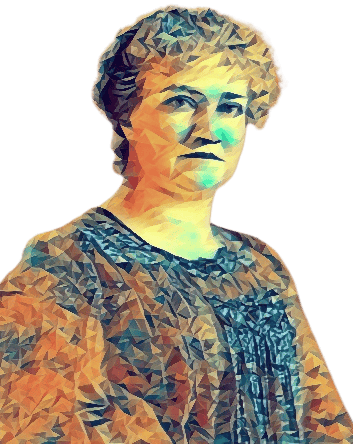Rosa Mayreder: Fame of feminist philosophy and plea for the rationality of women
Rosa Mayreder (1858-1938) is one of the most important figures in the history of feminist thought and social criticism. Born in Vienna, Austria, Mayreder's life was characterized by her tireless striving for equality, her profound philosophical investigations and her critical examination of the prevailing gender norms of her time. As a writer, philosopher and one of Austria's first feminists, Mayreder's work and life are a testament to the ongoing struggle for women's rights and intellectual recognition.
A life full of advocacy and insight
From an early age, Mayreder had a keen intellect and a strong sense of justice. She grew up in a society in which gender roles were rigidly defined, women's access to education was restricted and they were excluded from most professional fields. Despite these constraints, Mayreder developed into an intellectual autodidact who studied literature, philosophy and music. Her marriage to Karl Mayreder, a progressive architect, provided her with an intellectual partnership that was rare for women of her time.

Mayreder's literary and philosophical work often focused on criticizing social norms and gender-specific inequalities. She was actively involved in the women's movement in Vienna and co-founded the Austrian Association for Women's Rights. In her essays, novels and public speeches, Mayreder passionately advocated for women's access to education and professional opportunities and criticized the oppressive structures that forced women into subordinate roles.
Her writings, such as "On the Critique of Femininity" (1905), offered deep insights into the social mechanisms that disadvantaged women and called for a re-evaluation of the female role in society.Mayreder argued vehemently against the assumption at the time that women were inherently irrational and emotional, focusing instead on the cultural constructions that fostered these stereotypes. Her conviction that rationality knows no gender formed the core of her philosophical debate. She saw in the rational capacity of women not only the possibility of self-determination, but also the key to social change.
Influence and legacy
Rosa Mayreder's thinking and writing had a lasting influence on feminist theory and the social movements of her time. Her ideas paved the way for later generations of feminists, and her influence can be seen in the works of many subsequent thinkers and activists. Through her fearless criticism of the gender order and her plea for education and intellectual freedom for women, Mayreder helped to pave the way for the emancipation movements of the 20th century.
Despite her central role in the feminist movement and her extensive philosophical contribution, Rosa Mayreder remains an undervalued figure in many respects to this day. However, her demands for gender equality and intellectual recognition of women are still relevant and challenge us to critically question existing gender stereotypes and rethink the social structures that support them.
At a time when women continue to struggle for recognition in many areas of society, the life and work of Rosa Mayreder is a reminder that the struggle for equality and intellectual freedom remains an ongoing challenge that requires commitment and critical thinking. Her legacy challenges us to continue on the path of rationality and education as fundamental pillars for true equality and social change.







